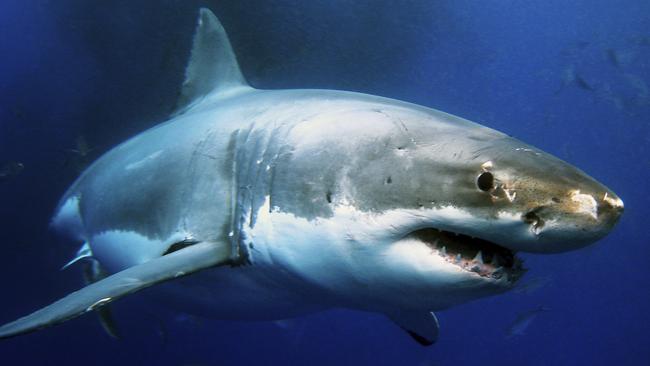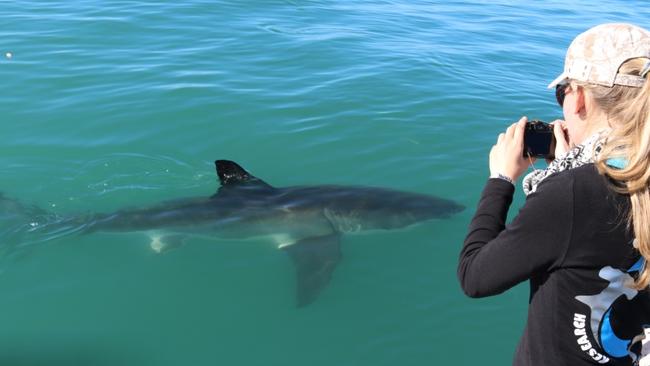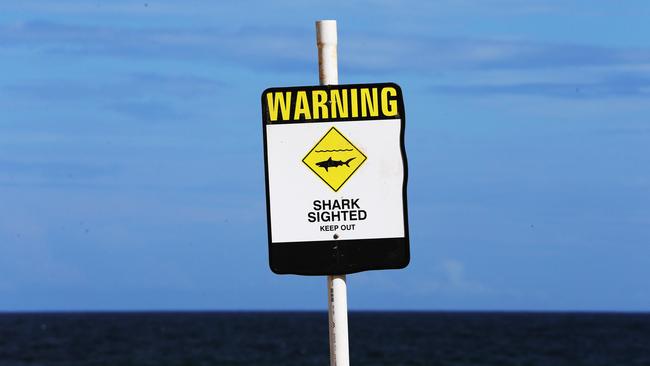Never smile at a crocodile, but get a shark to say “cheese”
A SHARK sighting usually clears the beach, but marine scientists don’t want you to flee next time you spot one. They want you to take a photo instead.

AUSTRALIANS are being asked to get a happy snap rather than scream next time they see a shark.
Shark researchers at the University of Western Australia have asked divers, marine societies, surfers and swimmers to contribute to the new citizen science database, Sharkbase.
Dr Ryan Kempster, of the university’s Neuroecology Group, said Sharkbase would improve our understanding of sharks and help protect species facing extinction.

“As researchers, we spend countless hours and dollars trying to find and study sharks, but with advances in modern technology almost everyone now has access to a camera phone that they can use to record wildlife encounters,” Dr Kempster said.
“We believe that citizen science could hold the key to improving our understanding and management of shark populations, while also advancing community education.”
But he wasn’t suggesting people put themselves at risk.

“We don’t want anyone to go out of their way to collect sighting records, we simply ask that if you see a shark during your normal activities — diving, swimming, surfing, fishing — you record it with Sharkbase. Your safety is top priority,” he said.
“Without even encountering a shark in the wild, it is still possible to contribute to SharkBase by submitting sightings seen in the news or on the internet.”
He said the vast majority of sharks were completely harmless to humans.
“In fact, only a small number of species are ever implicated in bites on humans, typically, these often include the white shark, tiger shark and bull shark,” he said.
According to the International Union for Conservation of Nature, 25 per cent of all shark species are threatened with extinction.
The new database comes six months after Western Australia shelved its “catch and kill” policy on sharks because there was no evidence it was effective.
Marine experts believe Australians need to learn more about sharks, their biology and migration patterns to reduce their risk of being attacked.
Originally published as Never smile at a crocodile, but get a shark to say “cheese”



